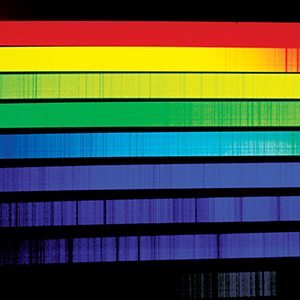 On this self-titled LP, the core duo of Sungod: Michael Sharp and Braden Balentine, create an odd combination of synth heavy folk infused rock music. A certain genre-hopping, overall post-rock feel may be notable, but for the most part the album is a strange amalgam of styles, combined in a way that sounds very different than the sum of its parts.
On this self-titled LP, the core duo of Sungod: Michael Sharp and Braden Balentine, create an odd combination of synth heavy folk infused rock music. A certain genre-hopping, overall post-rock feel may be notable, but for the most part the album is a strange amalgam of styles, combined in a way that sounds very different than the sum of its parts.
The most consistent thread running throughout the five pieces that make up this album is a clearly prog rock influenced approach to keyboard parts. The lengthy "Heavy Water" mixes in synth strings within a passage of expansive, flanging ambience.What the duo build up around that is where the strengths lie:the slow build into the final few minutes once the guitar expands and the drums drop in channels the most rock moments of Spacemen 3.
The other long composition, "L'ame de Toute Etoile" stands perfectly as a companion piece.The 1970s synth melodies form the core, and then the duo bring in the drums and lead guitar to increase the pace and heaviness.The uptempo structure and metronomic percussion calls to mind Neu!'s "Hallo Gallo", but with a looser, more "fun" feel to it.
The shorter pieces mixed around these two are the ones in which there is more variation, but also a bit less complexity.The acoustic and slide guitar of "Come Gently, the Wind" drift into a country/folk vibe, while "Burn Ward Blues" sits more between classic rock and blusey twang.Amongst both of these, a hint of folk appears as well, with vocals and electronics buried low in the mix.
"Shiftless en Nkawkaw" may be shorter, but also has the most distinctive sound on here, due to additional bass by Alex Hughes and Kristine Reaume’s flute.Compared to the rest, it is more an instantaneous"rock" piece, propelled by Hughes' bass.A chorus of vocals is present, but far off in the distance, as if bleeding over from the studio next door.Its first half is dense and claustrophobic, but on the second half things loosen up:noisy synths and erratic rhythms come in and make a mess of things.It seems as if the band is building the song to a dramatic climax, but instead they end things just as effectively by letting the individual instruments drift apart into playful chaos.
Along with the aforementioned proggy-ness to Sungod, there is also a certain outsiderness to their music as well.The duo happily pull from disparate genres multiple times in each song, and when the styles are placed alongside each other, they become something else entirely.The resulting album is murky, at times befuddling, but more often than not captivating.
samples:
 
Read More

